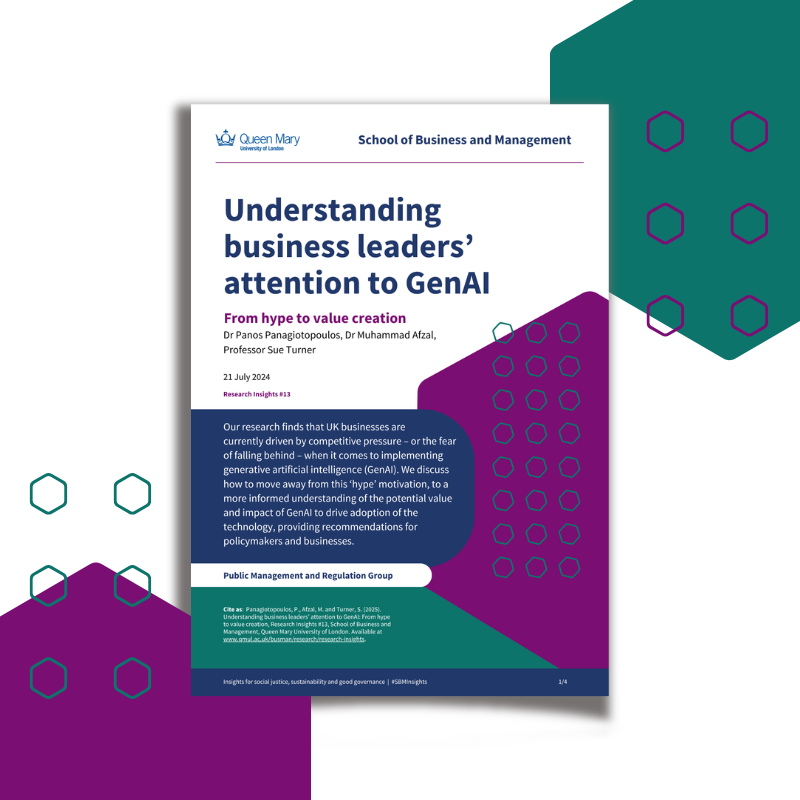Understanding business leaders’ attention to GenAI

Understanding business leaders’ attention to GenAI
Generative artificial intelligence (GenAI) has rapidly captured the attention of UK business leaders, but our research shows that much of this attention is driven by competitive pressure and fear of falling behind, rather than strategic planning or organisational readiness.
Our latest #SBMInsights brief explores what’s behind business leaders’ focus on GenAI and offers practical, evidence-based recommendations for policymakers and businesses.
Drawing on survey responses from over 700 IT decision-makers, we examine the current state of GenAI awareness across different regions and sectors, identifying key challenges in data readiness and upskilling.
Rather than chasing the hype, we propose a shift towards value-led adoption, underpinned by stronger data governance, workforce investment and industry-level coordination.
Who should read this brief?
Whether you’re shaping national strategy or managing implementation inside your business, this brief offers timely insights into how to move from hype to impact in the era of GenAI.
- Policymakers and civil servants developing AI-readiness strategies and investment programmes
- Business leaders and IT decision-makers working to deploy GenAI in practice
- SMEs and large organisations navigating adoption barriers and upskilling needs
- Organisations supporting AI governance and responsible innovation, including those contributing to the UK Government’s AI Opportunities Action Plan
By explaining leadership attention instead of directly measuring adoption, our research helps understand the role of hype in the early stages of business use of GenAI. Industry-level organising initiatives like Bridge AI and the techUK AI Hub can alleviate peer pressure to support more informed investment decisions.— Dr Panos Panagiotopoulos
About the researcher
Panos Panagiotopoulos is a Reader in Information Management (Associate Professor) and the co-director of the Public Management and Regulation research group at the School of Business and Management, Queen Mary University of London. He is the co-editor-in-chief of Government Information Quarterly and a former Fellow of the UK’s Alan Turing Institute (2018–2024).
This research insights brief has been co-authored with:
- Dr Muhammad Afzal, Postdoctoral researcher and teaching associate, Queen Mary University of London
- Professor Sue Turner, Professor in Practice for AI and Technologies, University of Bristol
Be the next author
Are you an academic at the School of Business and Management and want to share your research insights in a brief? Email Professor Elena Doldor, Research Impact & Engagement Director, at e.r.doldor@qmul.ac.uk.

